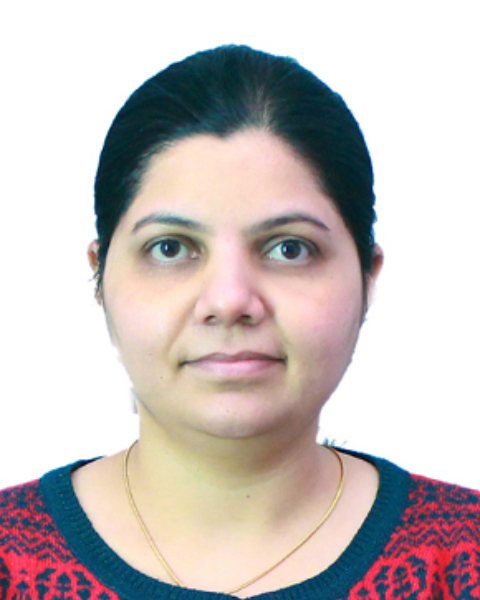PQA 03 - PQA 03 Gynecological Cancer, Pediatric Cancer, and Professional Development Poster Q&A
3544 - Gaps in Understanding of Cardio-Oncology amongst Cardiologists and Oncologists Working in Multidisciplinary Academic Institutions
Monday, September 30, 2024
8:00 AM - 9:00 AM ET
Location: Hall C
Screen: 21

Shagun Misra, MD
Sanjay Gandhi Postgraduate Institute of Medical Sciences
Lucknow, Uttar Pradesh
Presenter(s)
S. Misra1, S. Bansal1, R. Khanna1, P. Lal1, S. S. Sarangi1, A. Kapoor2, and S. Kumar1; 1Sanjay Gandhi Postgraduate Institute of Medical Sciences, Lucknow, India, 2Sanjay Gandhi Postgraduate Institute of Medical Sciences, Lucknow, India, Lucknow, India
Purpose/Objective(s): Assessing gaps in the knowledge of health care professionals’ in understanding and skills to monitor and treat cardiac complications of cancer treatments. Materials/
Methods: A questionnaire adapted from that of Ottawa Hospital Research Institute’s survey, consisting of 45 questions organized into 7 sections, was circulated via Google form to cardiologists, oncologists (radiation, medical) practicing or training in a multi-disciplinary setup and academic centers. The survey was distributed by email as well as social media. The survey enquired about asking about one’s perception of “cardio-oncology, availability of cardio-oncology services at the respondent’s institution, knowledge in identifying and treating these patients. A descriptive statistical analysis was carried out.
Results: Fifty-five professionals completed the survey, of which 55% were radiation/clinical oncologists, 21% were medical oncologists and 23% were cardiologists. 90% felt diagnosing cardiotoxic side effects and referral to a cardiologist as important aspect of cardio-oncology while 66% respondents discerned need of patient education on the cardiotoxic side effects of cancer therapy to be important. In nearly over half 59% the service was provided by general cardiologist, and 70% respondents felt that cardio-oncology services would improve prognosis of cancer patients. About 46.4% cardiologists felt they were knowledgeable in identifying while only 40% were comfortable with treating cardiovascular complications of cancer treatment. One-fourth (25%) cardiology respondents had prescribed cardiac medications to a patient with cardiotoxicity as a result of cancer therapy. Amongst oncologists, only a third (33.3%) would ask about cardiac disease and baseline cardiovascular risk factors prior to starting cancer therapy in all patients. 41.7% felt they were knowledgeable in identifying cardiovascular complications while 29.2% felt they had the knowledge to care for these complications. Nearly 20% felt that >10% patients have not received optimal cancer treatment because of previous cardiovascular disease or risk factors for developing cardiotoxicity. Majority, 60.7% were not aware of the guidelines. None of them had a dedicated cardio-oncology fellowship programme at their organisation. Limited infrastructure (55.4%) and interest (48.2%) were cited as the most potential obstacles to the development of cardio-oncology services.
Conclusion: This survey identified that professionals recognize cardio-oncology services to be an important component of cancer treatment. Gaps in the detection and treatment of cardiovascular complications were identified. Education in this niche area amongst professionals dealing with cancer patients is imperative.
Purpose/Objective(s): Assessing gaps in the knowledge of health care professionals’ in understanding and skills to monitor and treat cardiac complications of cancer treatments. Materials/
Methods: A questionnaire adapted from that of Ottawa Hospital Research Institute’s survey, consisting of 45 questions organized into 7 sections, was circulated via Google form to cardiologists, oncologists (radiation, medical) practicing or training in a multi-disciplinary setup and academic centers. The survey was distributed by email as well as social media. The survey enquired about asking about one’s perception of “cardio-oncology, availability of cardio-oncology services at the respondent’s institution, knowledge in identifying and treating these patients. A descriptive statistical analysis was carried out.
Results: Fifty-five professionals completed the survey, of which 55% were radiation/clinical oncologists, 21% were medical oncologists and 23% were cardiologists. 90% felt diagnosing cardiotoxic side effects and referral to a cardiologist as important aspect of cardio-oncology while 66% respondents discerned need of patient education on the cardiotoxic side effects of cancer therapy to be important. In nearly over half 59% the service was provided by general cardiologist, and 70% respondents felt that cardio-oncology services would improve prognosis of cancer patients. About 46.4% cardiologists felt they were knowledgeable in identifying while only 40% were comfortable with treating cardiovascular complications of cancer treatment. One-fourth (25%) cardiology respondents had prescribed cardiac medications to a patient with cardiotoxicity as a result of cancer therapy. Amongst oncologists, only a third (33.3%) would ask about cardiac disease and baseline cardiovascular risk factors prior to starting cancer therapy in all patients. 41.7% felt they were knowledgeable in identifying cardiovascular complications while 29.2% felt they had the knowledge to care for these complications. Nearly 20% felt that >10% patients have not received optimal cancer treatment because of previous cardiovascular disease or risk factors for developing cardiotoxicity. Majority, 60.7% were not aware of the guidelines. None of them had a dedicated cardio-oncology fellowship programme at their organisation. Limited infrastructure (55.4%) and interest (48.2%) were cited as the most potential obstacles to the development of cardio-oncology services.
Conclusion: This survey identified that professionals recognize cardio-oncology services to be an important component of cancer treatment. Gaps in the detection and treatment of cardiovascular complications were identified. Education in this niche area amongst professionals dealing with cancer patients is imperative.
